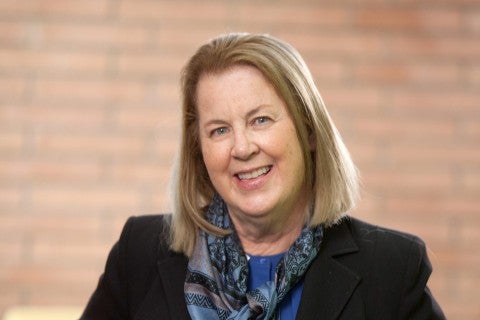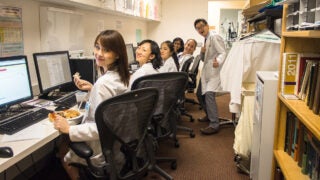
USC researchers found that American seniors are aging more slowly according to their “biological age.” (Photo/iStock)
Older Americans are experiencing ‘delayed aging’ — and better health
USC and Yale study reveals some good news, especially for men
Americans may be aging more slowly than they were two decades ago.
U.S. life expectancy has lengthened significantly for the last 60 years. But at least part of the gains in life expectancy may be due to a change in the rate of biological aging, rather than simply keeping very sick people alive for longer, according to a study by USC and Yale University researchers.

“This is the first evidence we have of delayed ‘aging’ among a national sample of Americans,” said senior author Eileen M. Crimmins, University Professor and AARP Professor of Gerontology at the USC Leonard Davis School of Gerontology. The study by Crimmins and lead author Morgan E. Levine, assistant professor at the Yale Center for Research on Aging, appeared in the journal Demography on March 6.
Using health and nutrition data from more than 21,500 Americans, the researchers examined how biological age — relative to chronological age — changed in the U.S. from 1988 to 2010, while considering the contributions of health behaviors. Researchers calculated biological age using indicators for metabolism, inflammation and organ function, including levels of hemoglobin, total cholesterol, creatinine, alkaline phosphatase, albumin and C-reactive protein in blood. They also used blood pressure and breath capacity data.
Biological aging slowing, but not for all
All age groups experienced some decrease in biological age. But the results suggest that not all people may be faring the same when it comes to slowing aging. Older adults experienced the greatest decreases in biological age, and men experienced greater declines in biological age than females. These differences were partially explained by changes in smoking, obesity and medication use.
“While improvements may take time to manifest, and thus are more apparent at older ages, this could also signal problems for younger cohorts, particularly females, who — if their improvements are more minimal — may not see the same gains in life expectancy as experienced by the generations that came before them,” said Levine, who received both her doctorate in gerontology in 2015 and her bachelor’s in psychology in 2008 from USC.
Slowing the pace of aging — along with increasing life expectancy — has important social and economic implications. The study confirms that modifying health behaviors and using prescription medications significantly impact the health of the population. Researchers believe that decelerating the biological aging process would push the timing of aging-related disease and disability incidence closer to the end of life, so that people can live more of their years in good health.
“Life extension without changing the aging rate will have detrimental implications,” Levine said. “Medical care costs will rise, as people spend a higher proportion of their lives with disease and disability. However, lifespan extension accomplished through a deceleration of the aging process will lead to lower health care expenditures, higher productivity and greater well-being.”
Data examined in the paper “Is 60 the New 50? Examining Changes in Biological Age Over the Past Two Decades” came from the National Health and Nutrition Examination Survey (NHANES) III (1988-1994) and NHANES IV (2007-2010). This research was supported by the National Institute on Aging grants P30 AG17265 (Crimmins), T32-AG00037 (Crimmins), and 4R00AG052604-02 (Levine).



